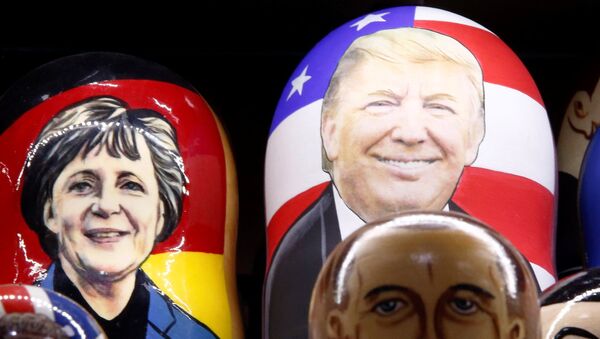Trump pledged to sign a trade agreement with the UK, which will facilitate the country's withdrawal from the EU without negative consequences, he said in an interview with British newspaper The Times.
According to Fenenko, such move undermines the unity of the European Union, with Germany currently being the leading force in the alliance.
"There is an element of the anti-German game, as the US assistance in Brexit is certainly a blow to European unity, or rather, to its version, where Germany is a dominant force," Fenenko told RIA Novosti.
In his interview with the newspaper, the new US President also stressed that German Chancellor Angela Merkel's migration policy was a big mistake and led to a crisis in the bloc, sharpening the existing conflicts between EU countries.
Europe has been trying to cope with a massive refugee crisis, with hundreds of thousands of undocumented migrants fleeing crisis-torn countries in the Middle East and North Africa, including from Syria, to escape violence and poverty. The European Union adopted a quota system last September that envisages the relocation of 160,000 asylum seekers across the bloc within two years.
The quota system has not been unanimously welcomed by EU members and faced criticism from several EU states primarily from the eastern part of the bloc, such as Slovakia, Poland and Hungary, who have opposed its mandatory nature.
In general, the migration crisis contributed to growing divisions within the EU and has provoked conflicts between its member states.




